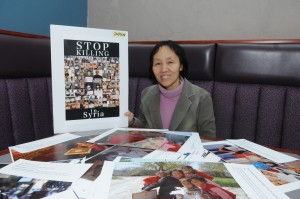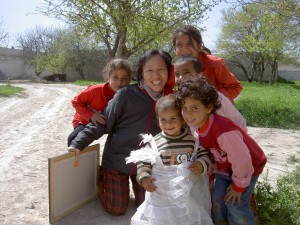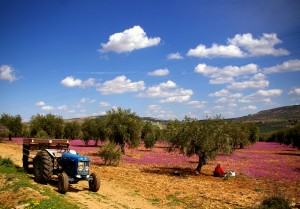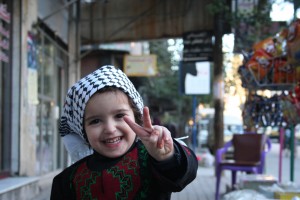This year’s Critical Issues Symposium – opening today on Hope’s campus – addresses “Engaging the Middle East.” Professor Megumi Hirayama of Meiji Gakuin University (MGU) in Tokyo has been doing just that for more than decade.

Hirayama, a visiting professor at Hope since last fall who specializes in public health and taught a comparative social development class, is a global citizen in her own right. Her passport has been stamped by over 50 countries; she has studied 16 different languages and speaks three fluently; her early career included stints as a health education officer for both the United Nations and World Health Organization in the Caribbean and Africa. She also started six non-governmental organizations (NGOs) to medically aid developing countries.
The Middle East has been Hirayama’s focus since 2005, having visited Syria 12 times, taking MGU students with her on six occasions before the civil war started in 2010. There, they researched on-going water contamination issues while engaging in home stays, making new Syrian friends in the process.
Hirayama wants Americans to know this: We are not the only ones worried about the Middle East. Other world citizens are, too.
She has always wanted her students to know and see and feel a reality of Syria that takes them beyond what the media shows, beyond conflict and crisis, to remember kind farmers and laborers who just want peace.
“I wish the war will end soon, and Syrians will smile as they did before,” said MGU graduate Yutaro Takemori, who studied water-borne diseases under Hirayama’s direction in Syria in 2009. “We should not forget this country and its kind people,” added Mayuko Hagari, another MGU graduate who traveled to Syria with Hirayama.

A sorrowful but hopeful nod comes from Hirayama when she hears those words. Her dedicated message of international care clearly struck heart cords and brainwaves. She has always wanted her students to know and see and feel a reality of Syria that takes them beyond what the media shows, beyond conflict and crisis to remember kind farmers and laborers who just want peace. Her current “Stop the Killing in Syria” campaign will continue in that vein when she takes it to the G7 Summit in Ise-shima, Japan, this June.
“This is not a true civil war (in Syria),” opines Hirayama. “It is an international war. So many foreigners are involved and private companies and their weapons are coming in from outside Syria to fight there. I never thought this war would last such a long time.”

With photos of Syrian people and sights spread out in front of her recently, Hirayama looks at their stories and remembers more of her own: her former research assistant who she did not hear from for months but later found was living in Sweden after using all his money and nearly dying to escape the country; her affection for Syrian friends and acquaintances whose whereabouts are now unknown.
Sorrow and hope. That’s what those pictures display to Hirayama. And us, too. Sorrow remembering the way Syria once was. Hope for the way it can be again.



It is clear the conflict in Syria is a crime the rulers and group interests without considering the victims. Crimes against humanity in Syria have opened the eyes to the world’s attention on the humanitarian life of concern and to provide aid to those most oppressed caused by war
Our NGO from Asian is also trying to help the humanitarian problems in Syria